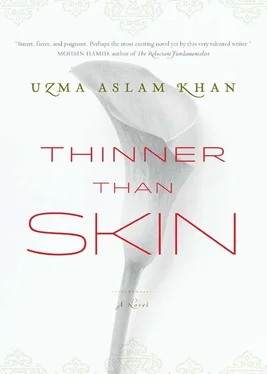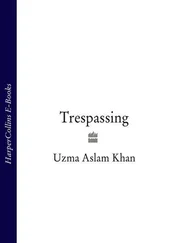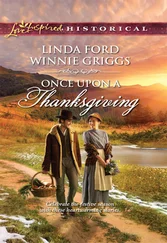“Too late. You already said it.”
Silence, then.
There were picnickers in the grass. Behind them rose a plaque commemorating what had once been gun emplacements, from before World War I. The plaque read,
Although they never fired on an enemy, coastal batteries here and throughout the Bay Area stood ready — a strong deterrent to attack.
“You had enemies back then, too?” I muttered, before catching myself. “I didn’t mean you you.”
She cut me a furious look. I bounced foolishly on my toes. She climbed further up to where enormous guns had once pointed out to the Pacific, guarding all three approaches to Golden Gate. There was a sublime view of Ocean Beach, but I knew it wasn’t for the view that she’d brought me here.
Without looking at me, she said, “Take me back.”
I assumed she meant to her warm purple house in the Mission. “Let’s go.”
“Take me back to the places in Pakistan that you love.”
I was stunned. If she’d never been to them, why did she say back ? And why now? And why ever?
When she said it a third time I understood that she presented her idea as a condition: take me back and I will keep loving you.
For always? I wanted to ask. No matter where?
I looked at her boldly now, and she returned my stare. I was hoping she’d understand that this is what my eyes said.
It was here that a man loved her, a man with whom she could spend an unknowable quantity of time doing just about anything: walking, going to the movies, eating sushi and Guatemalan tamales on the same day, gossiping about a father in Berkeley, a father I’d still not met because, as I was growing tired of hearing, he was unpredictable — I didn’t know whom she was protecting more, him or me — but who’d brought her to this country when she was three and stayed. I didn’t understand why a thirty-year-old woman — yes, she turned thirty today, it was meant to be a happy day! — with a great job and a great house in a pretty neighborhood in a pretty city didn’t feel this was home. All I understood was that she didn’t. She was at a time in her life when other women long for a child. Farhana longed for a country.
“You’re going home next summer. I’m coming with you. That’s what I want you to give me for my birthday. I want this promise.”
I didn’t want to return. With her, that is. Nor did I want to explain that for me it was a return, but I didn’t think it was for her. Nor that, just as she took joy in showing me this corner of the world because I was new to it, I could only take joy in showing her mine if she acknowledged it as new to her. Not if she claimed it as her own. I’d spent the past year lingering over northern California and could freely admit there was much I’d yet to learn. How many months was she prepared to linger over Pakistan? How many years? Would she have the patience to wait and yield till the geography really did begin to construct the person, the way the breakers beneath us constructed the shore? Did she want to yield? Of course not. It was a country practically under siege. We might be interested in you but not in your landscapes . What images did she want to see and to which land did she want to return?
We’d been happy. I wanted to stay happy. I said, “I’m going for work.”
It wasn’t a lie. The plan was to spend next summer in the Northern Areas with a friend from school, Irfan, to take pictures. Though loath to admit it to Farhana, this past year I’d sought Irfan’s help in paying my share of the rent. Irfan always wired the money without complaining, though of course it was meant to be the other way around. I should be wiring money home, not receiving it. Till I could pay him back, I’d keep working long hours at a brew pub a few blocks from my apartment and take whatever other work I could find, usually as a wedding photographer. I anticipated doing the same even after next summer, no matter how many images I shot of vertical or horizontal wildernesses. Yet her reply stunned me.
“Work? What’s the point? You’ll never sell any. At least I know glaciers.”
I stopped rolling on my toes.
“Perhaps you’re going back for the wrong reason,” she kept on.
“And being your tour guide is the right reason?”
She bestowed upon me an ice-black stare, the kind I was to receive the following year from a very different creature, in a very different place. Behind Farhana, I could see the guns that once pointed to the minefields outside Golden Gate. How easy it is to envision enemies lurking in the tide. As I looked over her shoulder, imagining what shapes those phantoms had once taken, I couldn’t have guessed that within fourteen months, she and I would be posted at our own separate lookouts, not on a headland overlooking the Pacific, but near a glacier overlooking Kashmir.
“What’s the most beautiful thing you ever witnessed?” she’d ask, as we lay together by her five-sided bay window, playing opposites. “I mean, a moment.”
I always said it was the mating of glaciers. I’d seen the ritual once, with Irfan and his wife Zulekha, on that previous trip to Pakistan’s north. I tried to communicate the wonder of it to Farhana, while she stretched on her stomach, swinging her legs.
First, I’d say, the village elders discussed at length which glaciers to mate. The female ice was picked from a village where women were especially beautiful and, because this wasn’t enough, talented. Talent meant knowledge of yak milk, butter, fertilizer, and, of course, wool. From caps to sweaters all the way down to socks, the questions were always the same. How delicately was the sheep’s wool spun? And what about the kubri embroidery on the caps — was it colorful and fine? Most importantly, did all the women cooperate?
“And the male?” Farhana laughed. “I suppose beauty and cooperation aren’t high on that list?”
He was picked from another village, I said. One where men were strong, and, because this wasn’t enough, successful. Success meant knowledge of firewood, agriculture, trekking, and herding. There was a fifth, bonus area, and this was yak hair. From this, some men could spin sharma, a type of coarse rug. A glacier in a village with such men had to be male.
She swung her feet, happy in woolen socks. “And where do they consummate their love?”
“In a hole dug into the side of a cliff.” I told her it was a ceremony I’d only been allowed to watch after swearing an oath of silence. There was a belief that words disturbed the balance between lovers-in-transit. Perhaps I was breaking the oath by describing it to her in detail there in her purple house, miles away from the sacred soil to which the ceremony belonged.
“The location of the hole had been as carefully selected as the bride and groom,” I continued, “by gauging which side of the mountain attracted the right length of shadow for the snow to hold for ten months, 14,000 feet above sea level. Two porters had heaved the ice on their backs the entire way. We were brought in a jeep, after taking that oath.”
I remembered Zulekha kissing Irfan’s cheek, hurriedly, making sure no one was looking. She had curls down to her shoulders and features as impish as his. They’d been neighbors in Peshawar and had gone to the same college in Karachi. They’d been in love since the age of six.
I remembered the girl I was with at the time, Rida, which means inner peace. The chapstick on her lips had the scent of mint crackling in firewood. Later, I’d feed her purple roses that left blood marks on our lips. (Of course, I left this detail out for Farhana.)
At the marital hole, we all stood, waiting. The porters lowered the ice-bride and ice-groom from off their backs without hurting them. They tossed the male in first. Whooshoo! Whooshoo! A loop of air seemed to dance right back up the hole and circle around again, inside my chest. The female was released on top. She fell without a sound.
Читать дальше












